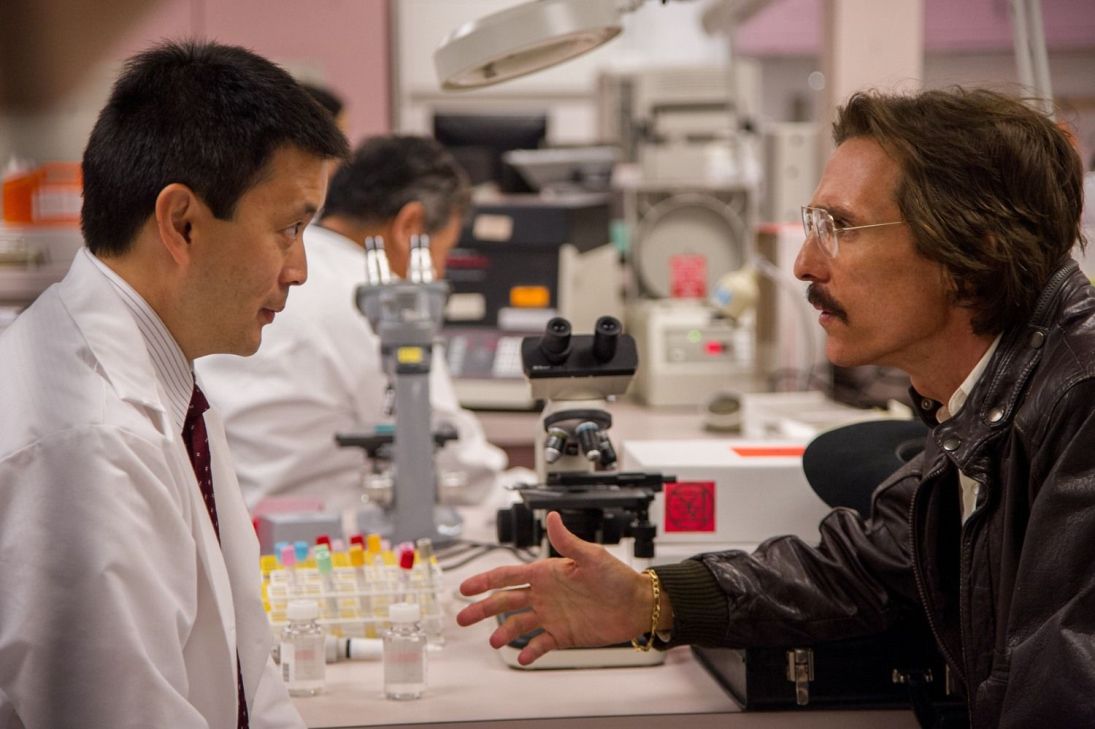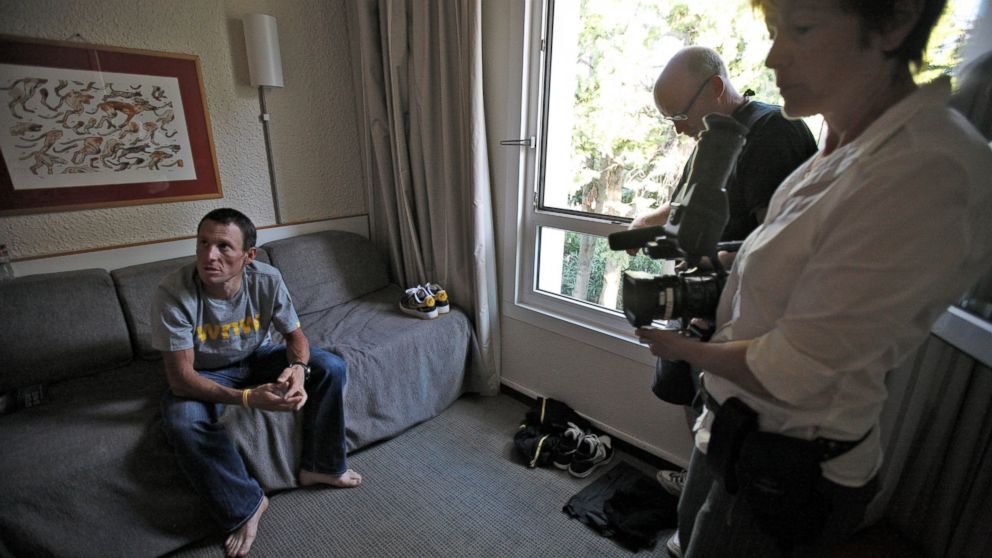The Nazi war machine had great taste: it wanted all of the world’s art treasure for itself. Someone had to stop them .Based on Robert M Edsel’s book, George Clooney and Grant Heslov’s screenplay takes a starry stab at telling a culturally serious World War Two story. Shot in both the UK and Germany, its moral values are high, but this tasteful war heist/thriller hits the ground flat-footed and doesn't get better.

José Padilha’s glossy reimagining of RoboCop is entertaining but mostly forgettable. Geared towards the profitable 12A market, its good looking but illogical action sequences are no replacement for the grimy, grubby and magnificently realised dystopian world from Paul Verhoeven’s 1987 scathing satire.

Delve into the personal life of Charles Dickens and she emerges, revealing another side of an author whose stories seem so wholesome. According to The Invisible Woman author Claire Tomalin, Ralph Fiennes’ film about Charles Dickens’ secret mistress is very different from the book upon which it is based. Scripted by Abi Morgan (The Iron Lady and Shame), The Invisible Woman, in which Fiennes stars and well as directs, gives us a more complex view of Dickens-as-man, albeit through a dark lens, literally and metaphorically.

Extreme physical transformation is a double-edged sword for actors. Setting aside the metabolic repercussions of shedding huge amounts of weight from an already lean frame, as Matthew McConaughey did for the role of rodeo cowboy and accidental AIDS activist Ron Woodroof, there’s a risk that the aesthetic will distract from the work.
This is a performance for which McConaughey is almost guaranteed to net the Best Actor Oscar next month, composing the highest peak yet in what has been one of the most efficient and absolute career turnarounds ever witnessed in Hollywood. It’s a full-blooded, ferocious turn, and a much-needed shot of adrenalin to the heart of Jean-Marc Vallée’s oddly staid drama.
We’re introduced to Ron days before his diagnosis with advanced AIDS in 1986, doom already writ large on McConaughey’s emaciated form. The calm before the storm unfolds in brutal, staccato snapshots: the presumed moment of his infection, his day job as an electrician interrupted by abrupt bloodshed, his eventual collapse. As a red-blooded, openly homophobic Texan and renowned “pussy addict”, Ron’s kneejerk response to his death sentence is belligerent denial, followed swiftly by proactive denial. His never-say-die tenacity leads him into semi-inadvertent battle with the FDA – in a bid to extend his own life, he drives across the border to Mexico having been denied access to the still-in-trials drug AZT, and ends up instead with an early version of the AIDS "cocktail" still widely prescribed today. Where AZT had only landed him back in hospital, the cocktail restores him to some measure of health, and thus begins the caper movie element of Dallas Buyers Club, with Ron dreaming up increasingly inventive ways to smuggle and distribute these medications to a growing HIV-positive community.
His never-say-die tenacity leads him into semi-inadvertent battle with the FDA – in a bid to extend his own life, he drives across the border to Mexico having been denied access to the still-in-trials drug AZT, and ends up instead with an early version of the AIDS "cocktail" still widely prescribed today. Where AZT had only landed him back in hospital, the cocktail restores him to some measure of health, and thus begins the caper movie element of Dallas Buyers Club, with Ron dreaming up increasingly inventive ways to smuggle and distribute these medications to a growing HIV-positive community.
Running alongside all this is the touching relationship between Ron and fellow patient Rayon (Jared Leto), a transgender woman whose blithe sweetness gradually sands down Ron’s rougher edges. While the erosion of Ron’s bigotry isn’t always convincingly drawn – his cartoonishly thuggish friends are rolled out as less-than-subtle benchmarks – every moment between McConaughey and Leto feels genuine. But as the film becomes more bogged down in a half-hearted morality story about federal government and a related subplot surrounding Jennifer Garner’s bland doctor Eve (pictured left), you’re left longing for more time with Leto’s achingly moving performance. Garner does nothing to improve what’s already a clunky role; spouting indignant lines like “What do the FDA know about treating patients?”, she’s a morality delivery device rather than a character, which makes her dynamic with Ron ring hollow.
But as the film becomes more bogged down in a half-hearted morality story about federal government and a related subplot surrounding Jennifer Garner’s bland doctor Eve (pictured left), you’re left longing for more time with Leto’s achingly moving performance. Garner does nothing to improve what’s already a clunky role; spouting indignant lines like “What do the FDA know about treating patients?”, she’s a morality delivery device rather than a character, which makes her dynamic with Ron ring hollow.
It’s Craig Borten and Melisa Wallack’s script that most consistently rankles; the strangely sporadic use of title cards to mark the passage of time is symptomatic of an overall awkwardness. The thread of Ron’s motivation – much like in Steven Spielberg’s Schindler’s List, the question is where the line sits between shrewd business sense and genuine philanthropy – becomes less and less well defined, but McConaughey’s work is so rigorously consistent it’s hard to notice.
Dallas Buyers Club feels closer to a wasted opportunity than a triumph, although its success in bringing a remarkable and little-told story to a wider audience must be lauded. It’s a dated, often clumsy drama buoyed by two eminently fresh and graceful performances.
Overleaf: watch the trailer to Dallas Buyers Club

A woman tramps the streets of Paris looking for a man. It’s night. It’s raining. She pops into bars asking for him. Everyone knows who he is. He’s been seen, but not recently. Earlier, early in the evening, she was supposed to meet him but he hadn’t turned up. She doesn’t know it, but he’s stuck in the lift of an office block. He thought he’d be in and out of the building in moments. While trapped, the car he’d parked across the street has been taken by a leather-jacketed young tough who brings his girlfriend from a florist’s along for the joyride.

Lance Armstrong is a Hollywood villain who just happens to be real. He bullies, lies, manipulates, cheats and destroys lives until righteous crusaders hunt him down and drive a stake through his heart. And that, more or less, will be the plot of the movie Stephen Frears is working on now. Popcorn munchers demand nothing less than a comeuppance for the bad guy. To cite Oscar Wilde, the good end happily, the bad unhappily: that’s what fiction means. It’s not quite what happens in The Armstrong Lie.
Alex Gibney, who has made uncompromising films about Enron and WikiLeaks, was the ideal director to bring his gimlet eye to the sporting comeback of the century. Armstrong had survived testicular cancer and won seven Tours de France in a row when he retired in 2005, having eluded every drug test and come up smelling of roses. He made his grand return to the Tour in 2009, and on camera not even he can convincingly explain why. To continue raising awareness for his cancer charity, shoulder to shoulder with that other slick liar Bill Clinton, is the most charitable spin you could put on it. Hubris is not a big word in the cyclist’s dictionary.
 Gibney was given intimate access to Armstrong’s every movement. The only sanctum he didn’t penetrate was the toilet where the drugs tester watches him supply a sample. For first-time visitors to the Tour on film, it’s a fascinating and properly cinematic account. Armstrong runs in a respectable third (with apologies for the plot spoiler if you weren’t reading the sports pages back then). It’s not the victory his internal scriptwriter craves, and he apologises on camera to Gibney for screwing up his movie. But the bigger screw-up was to come.
Gibney was given intimate access to Armstrong’s every movement. The only sanctum he didn’t penetrate was the toilet where the drugs tester watches him supply a sample. For first-time visitors to the Tour on film, it’s a fascinating and properly cinematic account. Armstrong runs in a respectable third (with apologies for the plot spoiler if you weren’t reading the sports pages back then). It’s not the victory his internal scriptwriter craves, and he apologises on camera to Gibney for screwing up his movie. But the bigger screw-up was to come.
In post-production the story came out. Cyclists were subpoenaed and, where they’d happily hoodwinked the press, they weren’t going to lie under oath. Armstrong was exposed and went on Oprah to make his mealy-mouthed mea culpas. Gibney had to start again, this time piecing together the story of the epic lie that everyone in and around cycling had invested in for so many years.
In this rebooted story, hindsight casts a fresh light on Armstrong’s breathtaking narcissism. As he peddles the barefaced syllogism - I wasn’t caught therefore I can’t have doped - it’s like watching The Sixth Sense the second time round: you can’t believe you missed the clues. Gibney, who supplies the voiceover, is honest enough to be ashamed that he too bought into the legend and hollered like a roadside cheerleader. So this is as much about his redemption as a reliable narrator.
 The infrastructure of doping is explained in forensic detail. The testimony of witnesses fill the gaps – various teammates whose lives Armstrong casually destroyed; the sinister Dottore Ferrari who built the cyclist's post-cancer bionic body with blood-boosting supplements; Armstrong’s nemesis David Walsh of the Sunday Times (from whose book the Frears film is adapted). And there at the heart is Armstrong before and Armstrong after.
The infrastructure of doping is explained in forensic detail. The testimony of witnesses fill the gaps – various teammates whose lives Armstrong casually destroyed; the sinister Dottore Ferrari who built the cyclist's post-cancer bionic body with blood-boosting supplements; Armstrong’s nemesis David Walsh of the Sunday Times (from whose book the Frears film is adapted). And there at the heart is Armstrong before and Armstrong after.
In Hollywood there would be clear blue water between the liar and the penitent. The lines are more blurred in reality. What’s finally to the detriment of the film is that Gibney cannot quite land the killer punch. “The doping’s bad,” says Betsy Andreu, who with her cyclist husband testified against Armstrong, “but Lance’s abuse of power is worse.” There is no more than superficial acceptance from Armstrong that he mercilessly caused collateral damage in his quest to be the best cheat. Perhaps it's part of his dreadful pathology that he too is seduced by his own charisma. If The Armstrong Lie had produced that confession, it would have deserved le maillot jaune. But the camera looks into the eyes of a plausible monster, and waits in vain for them to blink. For proof watch the clip overleaf.
Overleaf: 'I am one of the greatest riders of all time'

After his outsized triumph as conman Irving Rosenfeld in American Hustle, Christian Bale is gaunt and stringy again (Jennifer Lawrence will be happy to hear) in this minor-keyed, intensely atmospheric story of two brothers in an America that time forgot. It's set in North Braddock, Pennsylvania, a ghost town all but abandoned by its devastated steel industry. "Born down in a dead man's town", as the Boss put it in "Born in the USA". As the camera roams over its poor, pinched houses in the rain, you know nothing good is about to happen here.

Just what kind of beast is Peter Berg's Lone Survivor? A jingoist justification for the continuing conflict in Afghanistan? A cautionary tale questioning the rules of engagement? War porn? An intense vehicle for its talented stars? Or, in fact, a critique of the American war machine which sends young men out to be slaughtered and provides them with scant support? Seemingly improbably, Lone Survivor can be viewed in all of these ways and thus looks set to divide audiences, perhaps along national lines, perhaps along political ones.

Who'd have thought that buried deep within the bromance antics of That Awkward Moment, the latest essay in celluloid dude-dom to confirm the notion that guys will be guys, would lurk a Shakespeare comedy? But forsooth, writer-director Tom Gormican's feel-good essay in three lads larking about in New York takes as its inspiration none other than Love's Labour's Lost, that Bardic study in the limits of celibacy and high spirits dampened down near the final curtain by death.

It’s hard to believe your eyes when you see a film now actually exists in which Stallone meets De Niro in the boxing ring. It’s Rocky v Raging Bull, of course, a fantasy match-up no one sane ever fantasised about. It sounds like the result of a Hollywood pitch meeting gone mad, stunt casting of imperial chutzpah.

